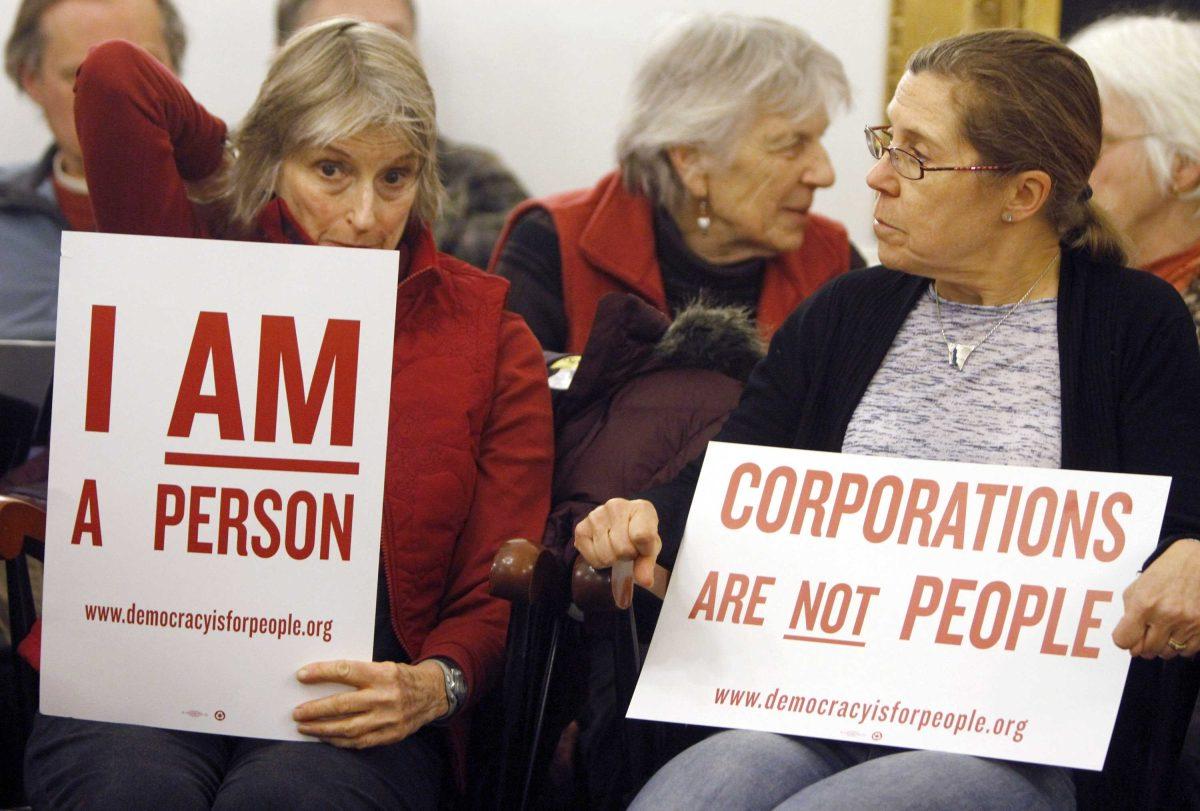How would you react if your future boss told you how to vote?
To many, this probably sounds like a silly question. It surely can’t be legal for a boss to do such a thing, right?
Wrong.
Until 2010, when the United States Supreme Court struck down the core of our country’s campaign finance laws in the landmark Citizens United case, federal law prohibited companies from using corporate money to endorse political candidates.
However, shortly after the Citizens case, in predictable fashion, corporate money began flooding the political spectrum through vehicles known as Super PACs, or political action committees.
Now, as a result of this ruling, CEOs no longer have to play by any federal rules when it comes to asking their employees to vote for their company’s preferred candidate. It is truly a force that has undermined, and will continue to undermine, our democracy until it is overturned.
The most egregious aspect of the law is that it allows for contributions by corporations and extremely wealthy individuals to be both unlimited and anonymous in nature.
More specifically, though, the Supreme Court’s decision, in effect, allowed for CEOs to explicitly advise their employees regarding which presidential candidate they should vote for during this past election — or else.
In fact, several notable heads of corporations this year sent letters or packets of information to their employees deliberately attempting to sway their opinions.
These letters typically included rhetoric along the lines of the costs of “Obamacare” and potential tax increases President Obama has planned, if elected.
To be clear, not one of these letters has an ounce of credibility. They’re merely bullying tactics dictated toward their own employees all in the name of paying a slightly lower tax rate.
Shockingly enough, some chief executives went as far as saying their employees’ jobs may be jeopardized if Obama was re-elected.
David Siegel, CEO of Westgate Resorts, wrote to his 7,000 employees several weeks ago to tell them if President Obama won, the prospect of higher taxes would hurt the company’s future. He went on to say he would have no choice but to reduce the size of the company, which would undoubtedly jeopardize jobs.
Any employee working for Mr. Siegel would surely be concerned about his or her job, and, given the current unemployment situation, might actually heed his advice regardless of party identification.
Additionally, the notoriously ultra-conservative billionaire Koch brothers sent letters urging 45,000 of their employees to vote for Mitt Romney, and they also warned of the dangers of another four more years for the Obama administration.
The inherent immorality contained within Citizens United is so blatantly obvious — the ruling disproportionately favors wealthy individuals who can finance large-scale independent or corporate spending — rather than people like you and me.
While many Americans are worrying about the role of government in today’s society, we honestly should be more concerned with campaign finance reform.
If we want the will of the majority to be heard in our country, then we desperately need to reform our current system of unlimited campaign donations.
Otherwise, politicians will continue to answer only to the special interests that finance their re-election.
Last time I checked, it was “we the people,” not “we the corporation.”








